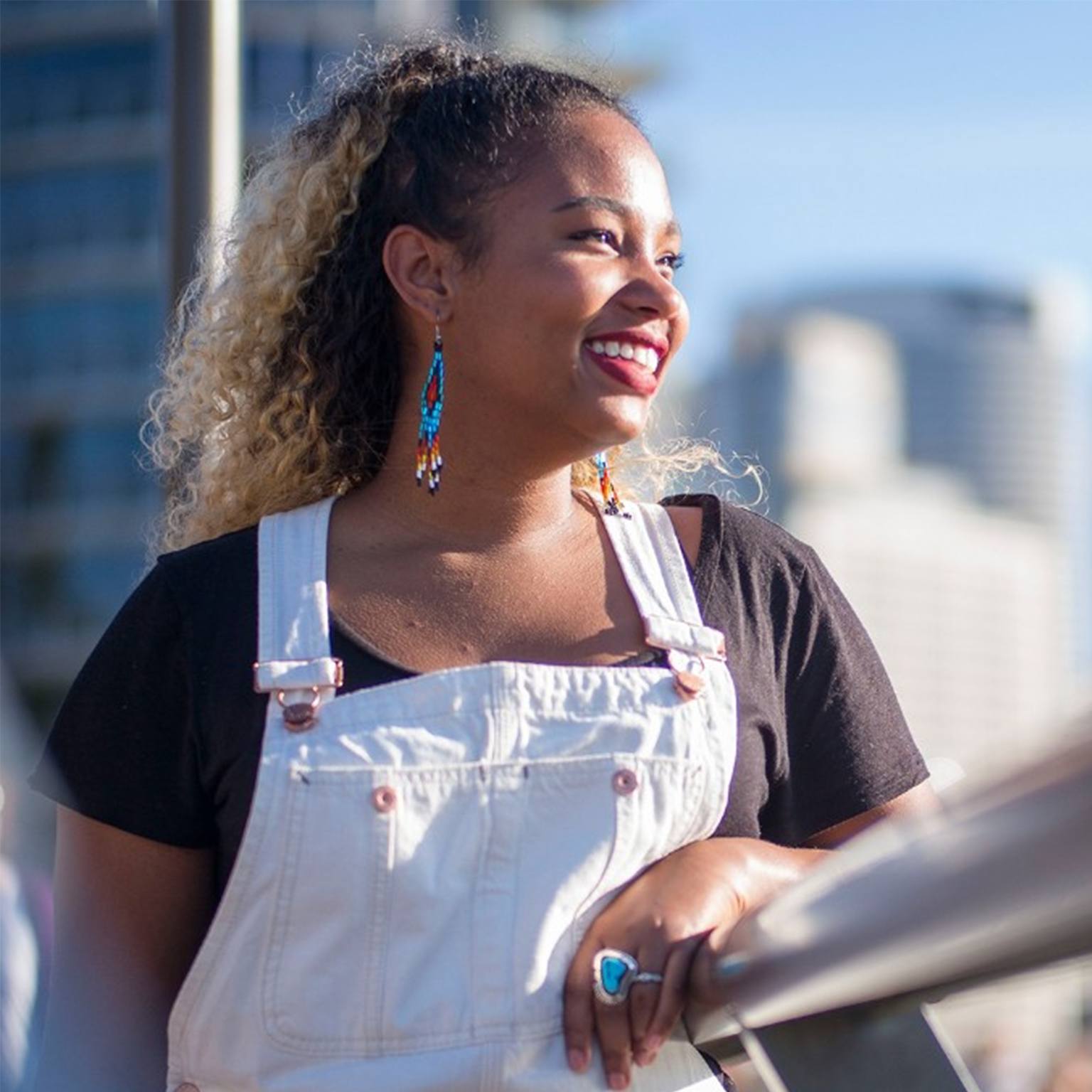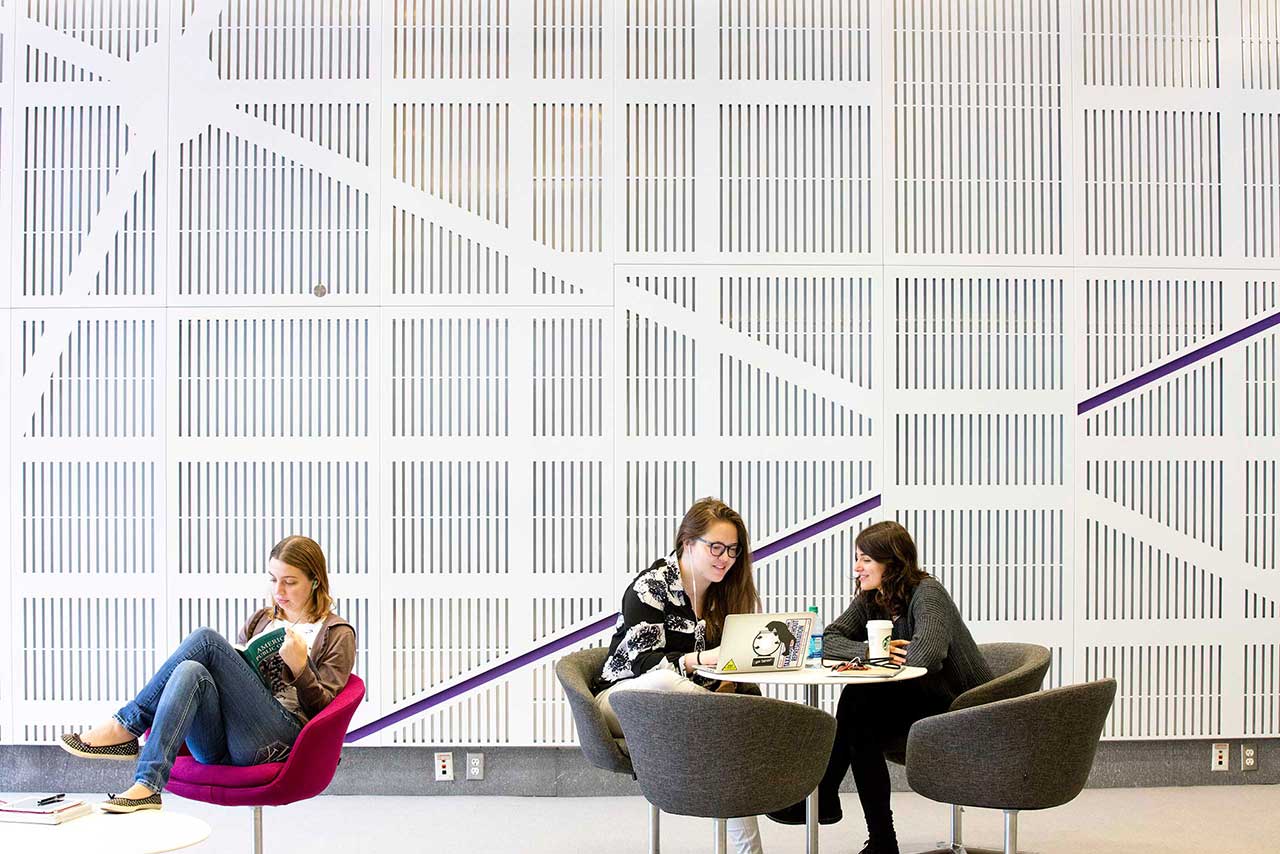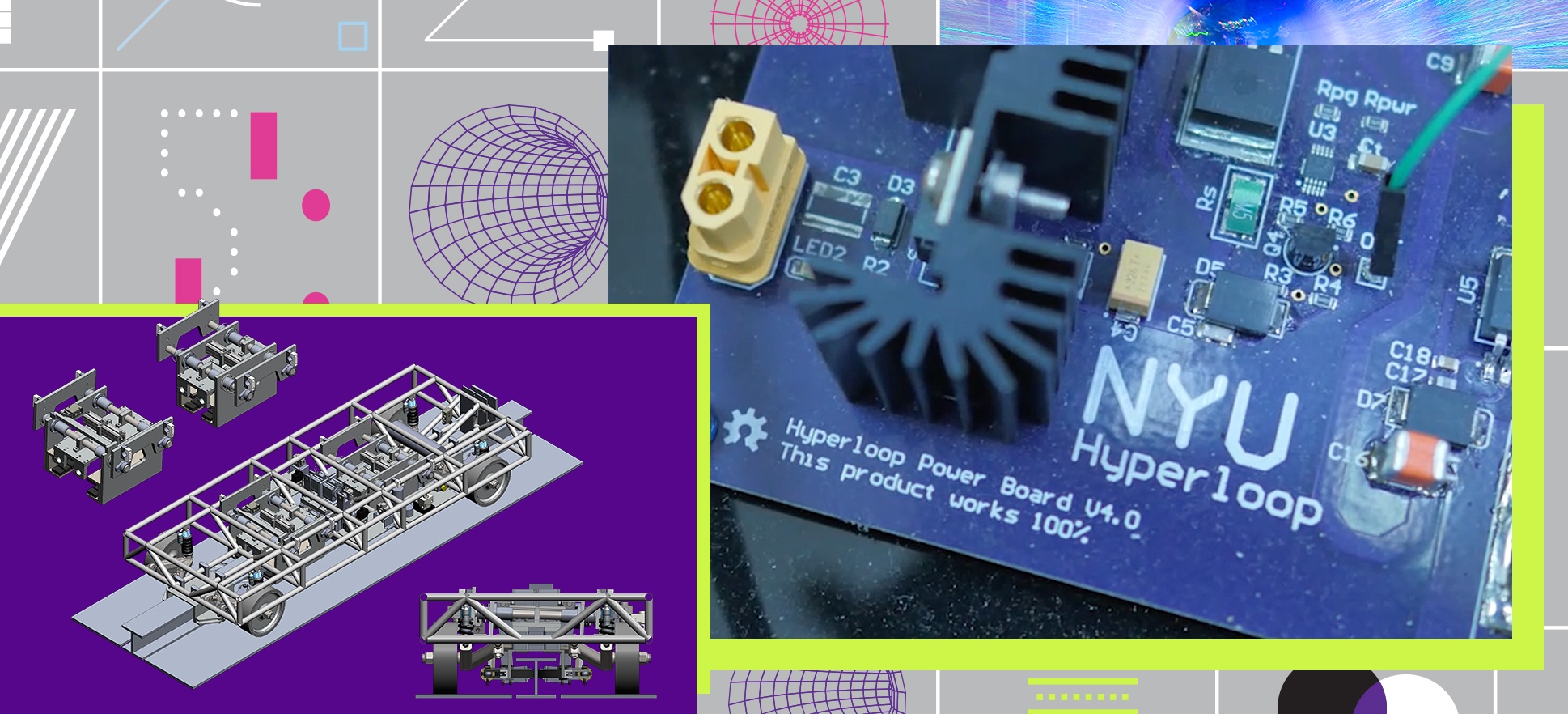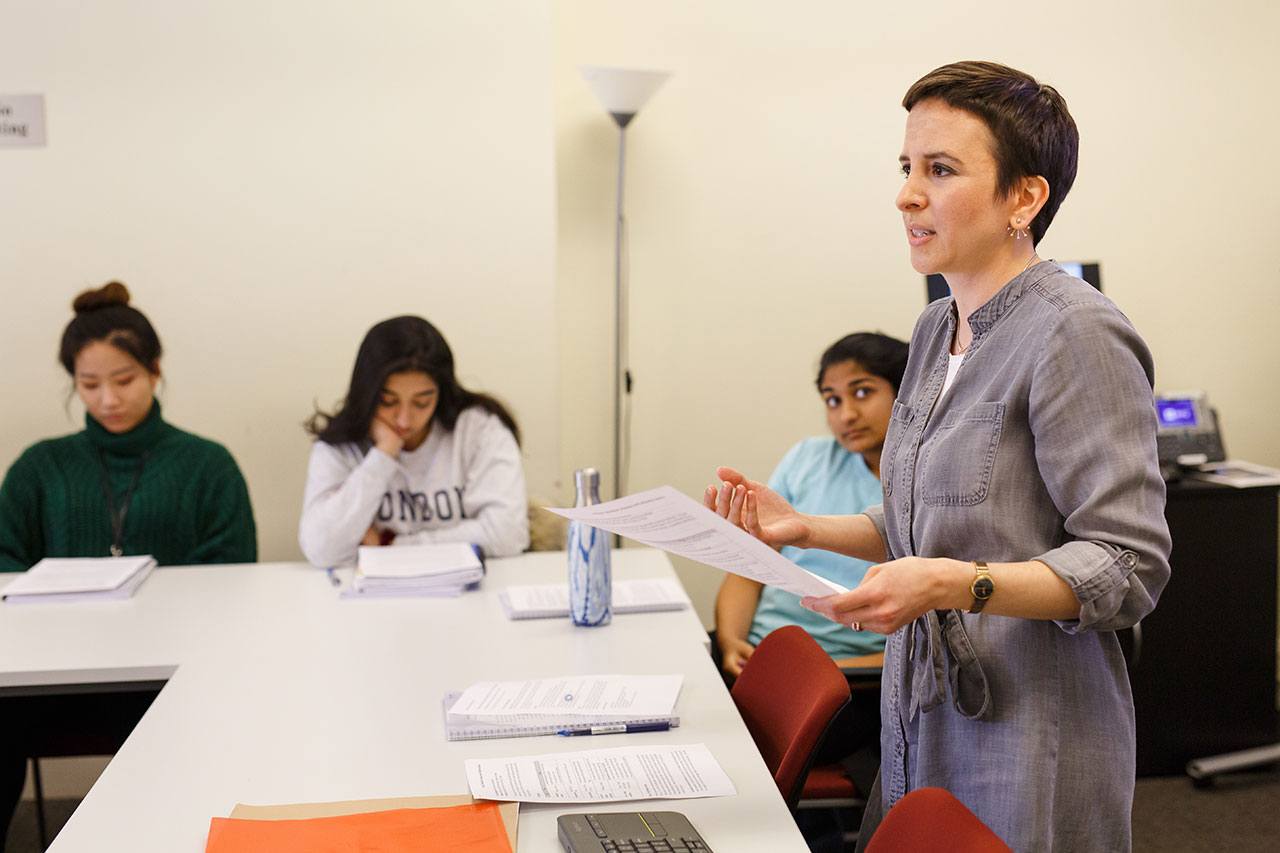
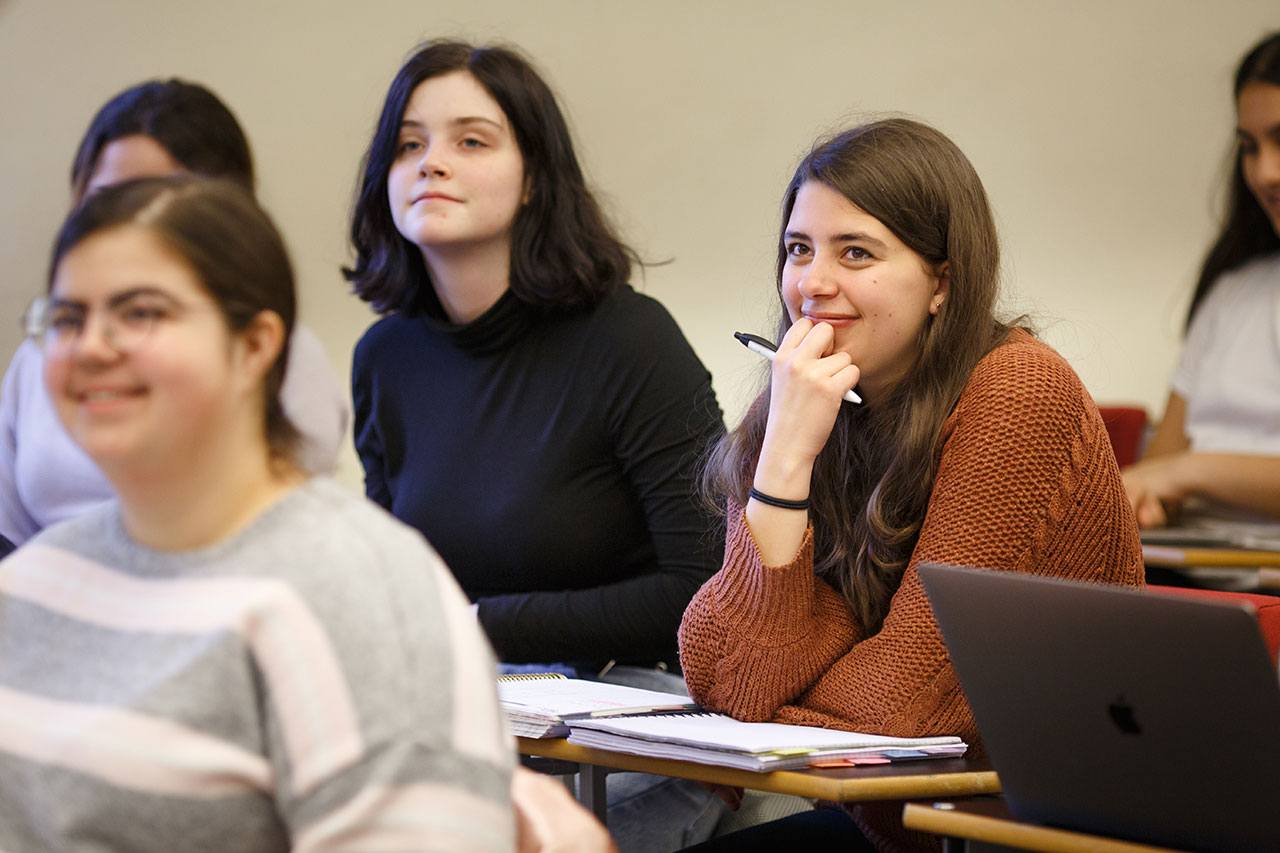
What Education Studies Is and Is Not
Contrary to the sound of its name, the Education Studies major at the Steinhardt School of Culture, Education, and Human Development is not primarily a teacher-training program. “The main goal of the curriculum,” says Ying Lu, associate professor of applied statistics, social science, and humanities and the department’s lead instructor, “is to train students to examine education systems here in the United States and abroad from a sociological, historical, and policymaking perspective. We see education as something that influences society on many levels. But, in turn, society influences forms of education. We seek to enlighten our students about the inequalities that exist in urban schools, especially in terms of access to opportunities like language learning, college prep, and special education.”
Education Studies Majors Address Inequities in the Classroom
In fact, one of the core courses is called American Dilemmas: Race, Inequality, and the Unfulfilled. There, students learn the historical and sociological foundation of education in the United States. They also examine education’s role in advancing civil and human rights. “It’s a transdisciplinary course,” says instructor Pamela D’Andrea, who is also a researcher at the NYU Metro Center, a research and technical assistance center at Steinhardt. “It’s based in sociology. But we also look at history and some pedagogy that addresses historical, systemic inequities around race.” D’Andrea aims to raise students’ awareness that schools are political spaces and that they don’t have to accept inequities. “We don’t want students to say, ‘Oh, this is just how schools are,’ because it’s not,” she says. “Problems are people-made but they can also be fixed by people.”
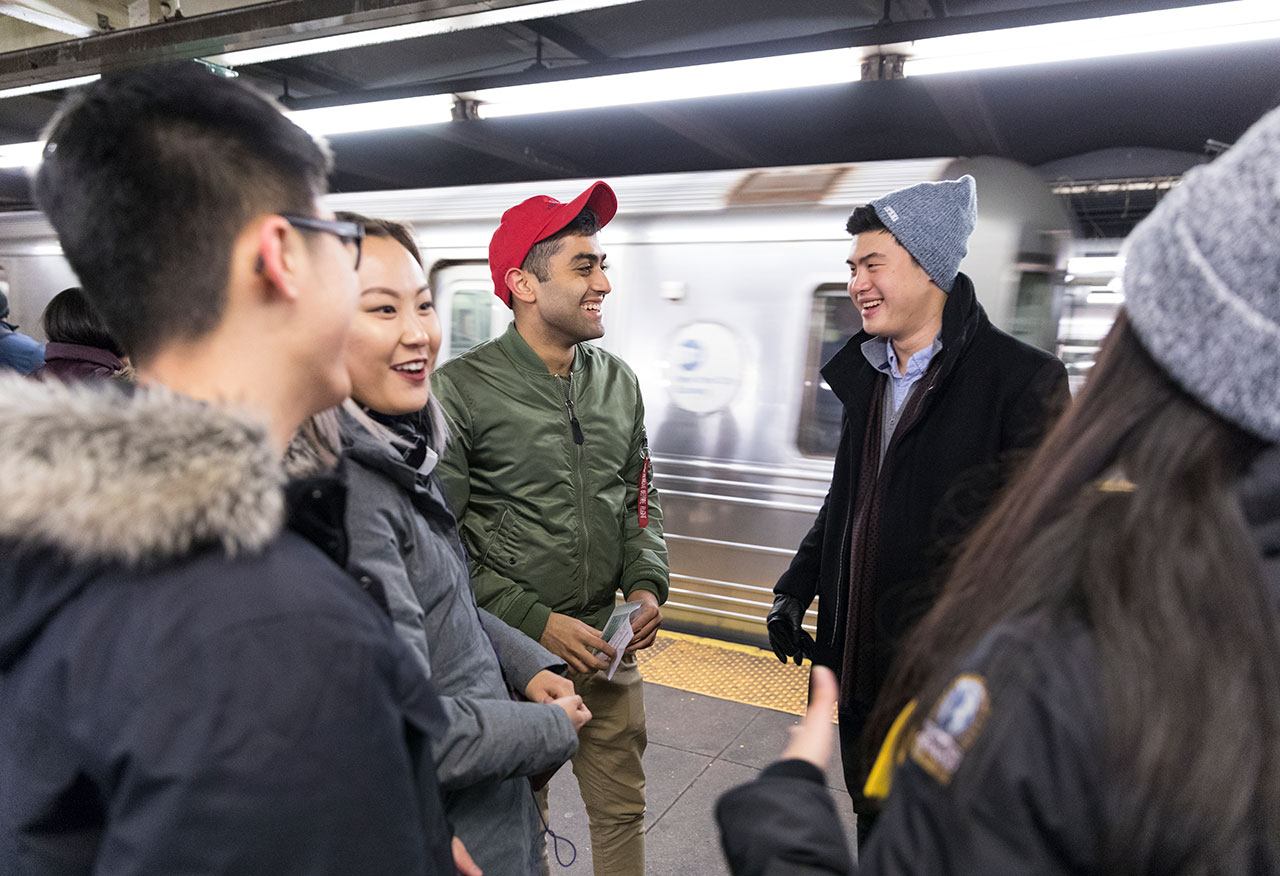
Exploring the Value of Fieldwork for Education Studies Students
To that end, D’Andrea makes experiential learning part of every American Dilemmas course. “The out-of-class part is one of my favorites,” she says. “If we stay in the classroom, we’re never really going to understand what addressing those issues of inequity looks like. I have my students at fieldwork sites all over the city. They see people who are doing actual education equity work, either at a grassroots level or at a school. They get different vantage points, and then we come together and talk about it.”
Putting Knowledge Into Practice
Yutai Hu is a junior double-majoring in Education Studies and East Asian Studies. Out of the core Education Studies classes he has taken, American Dilemmas was his favorite. “It focuses not only on theories but also emphasizes the importance of integrating our knowledge into practice. I spent two semesters tutoring students for the SATs and had the chance to participate in a class at a school in Harlem. As an international student, I gained so much understanding of the U.S. educational system from this course. For me, getting into the community and experiencing the authentic cultural practices were very valuable.”
Sharon Kim, a senior Education Studies major, says she especially enjoyed her Introduction to Global Education class. “From privatization to human rights education, we covered topics that I didn’t even know I was interested in. Every time I stepped into this class, my worldview shifted and expanded.”
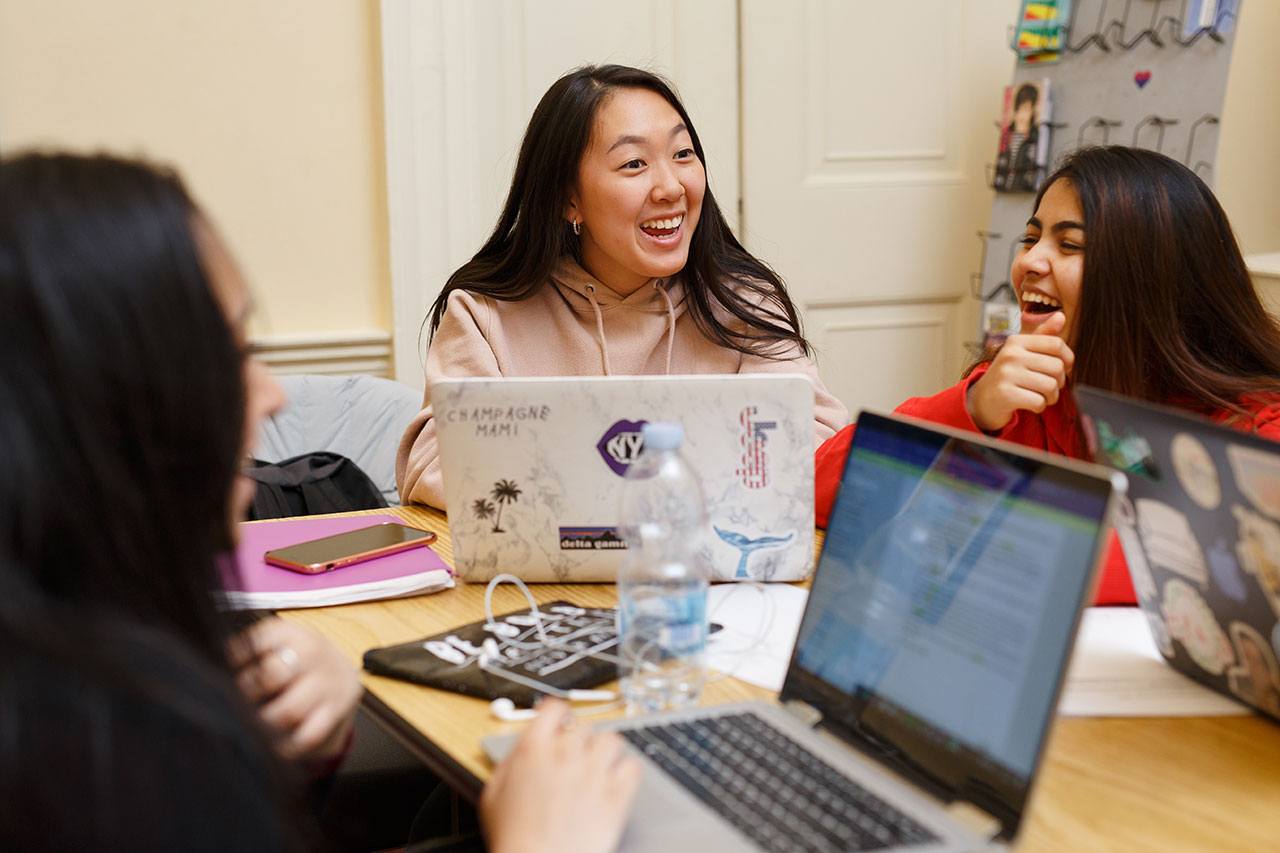
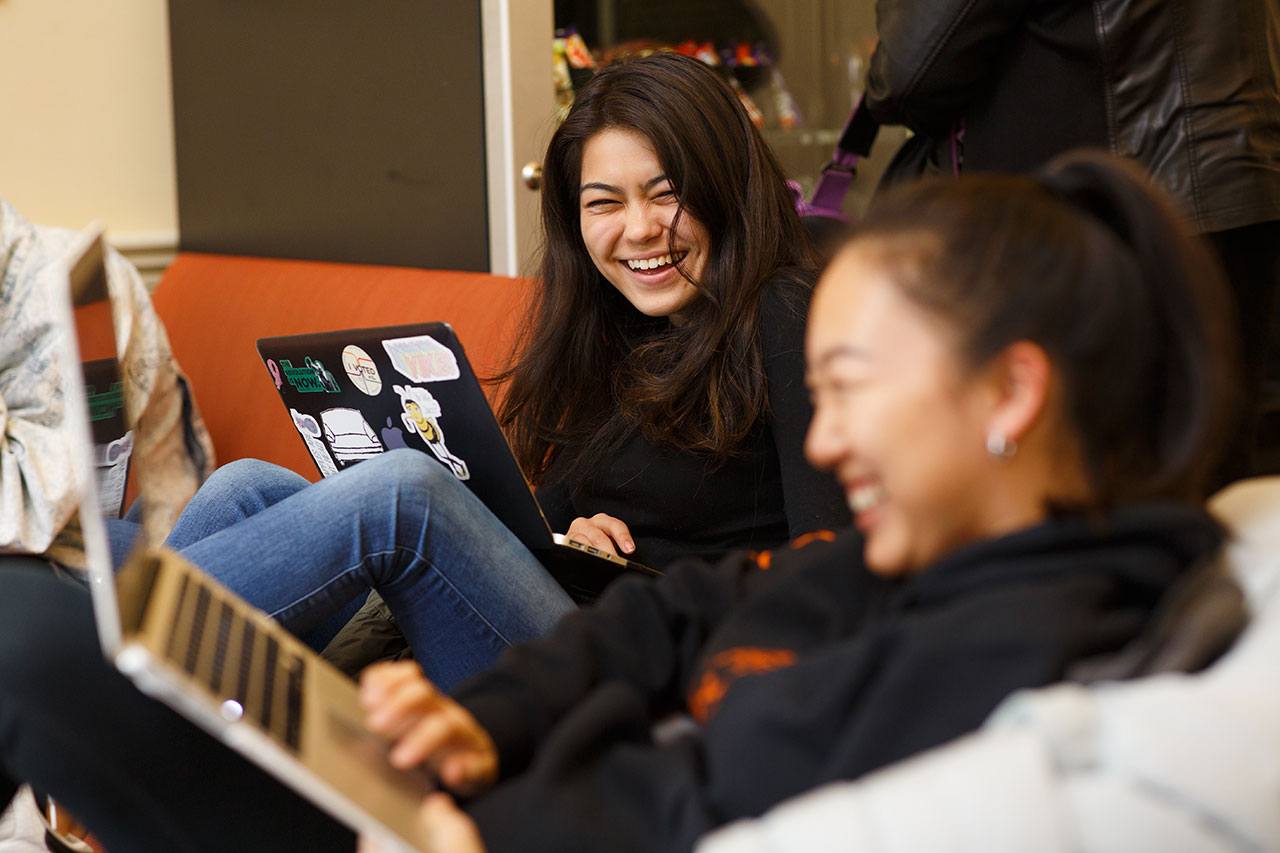
Working to Benefit Future Generations
But both Yutai and Sharon agree that the Education Studies program at NYU Steinhardt will change the way you view education and its impacts on policy, race, nationality, and more. Yutai adds, “Learning about the complexities of education requires time and effort. Be aware that accepting the mission to improve our educational systems to benefit future generations is a huge decision. But if your passion and interests have led you to this major, congratulations! You have found one of the biggest treasures in your life.”
